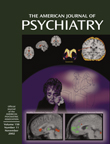In 1926 Sigmund Freud wrote that “obsessional neurosis” was “the most interesting and repaying subject of analytic research. But as a problem it has not yet been mastered”
(1, p. 113). Now, some 75 years later, much the same can be said. However helpful it may have proved in elucidating the meanings of obsessive-compulsive disorder (OCD) symptoms, Freud’s guarded optimism about the efficacy of psychoanalytic treatment for this fascinating and complex disorder has not been supported by clinical experience, and in recent years new therapeutic approaches have arisen that have essentially supplanted it. The present volume is the second edition of a multiauthored text first published 10 years earlier, describing for clinicians the most recent developments in both the understanding and treatment of the illness.
It is clear that, in the editors’ view, psychopharmacology now takes pride of place in the therapist’s armamentarium. Following their own general introduction, six chapters are devoted to detailed and highly informative discussions of the variety of medications currently in use or in study for the treatment of OCD, beginning with clomipramine and ranging through the SSRIs, each apparently equally effective (roughly 60% of patients showing significant improvement), with their respective side effects carefully delineated. In each case the limitations of the drug are carefully spelled out, and the need for long-term maintenance treatment is made explicit.
There follow three chapters that emphasize the use of behavior treatments. Particularly valuable (at least to me) are Penn and Leonard’s essay on the diagnosis and treatment of OCD in children and adolescents, in which the intriguing variant type known as PANDAS (pediatric autoimmune neuropsychiatric disorders associated with streptococcal infection) is described, and the elegant and sensitive chapter by Greenberg and Wiztum on the special issues in the treatment of patients who are strictly religious. Van Noppen and Steketee describe in great detail the range of available cognitive behavior approaches, including a multifamily group method that appears extremely promising (and cost-effective).
The two final chapters, generally excellent, raise some questions. In their wide-ranging discussion of OCD spectrum disorders, Eric Hollander and Andrea Allen include eating disorders and, specifically, anorexia nervosa. They speak of the anorectic’s “obsessions” with food and body image. It seems to me that they confuse obsession (usually defined as an ego-alien thought) with preoccupation, which in the case of the anorectic is only too forcefully held and defended. This is no mere semantic question; it has important implications for treatment.
Similarly, in their clinically useful and comprehensive essay on the management of treatment-resistant patients, Dan Stein and his colleagues discuss “dopaminergic augmentation.” In fact, they are recommending the use of dopamine-blocking agents (e.g., haloperidol), which are the reverse of dopaminergic. This could prove confusing to the unwary reader.
A recent paper by Mataix-Cols et al. in this
Journal (2) added another caveat, suggesting that adult OCD patients, with or without adequate treatment, “might present a more stable symptom constellation than previously thought” (p. 267). In other words, the long-term course of the illness and the extended effects of treatment of whatever kind remain material for further study.
Overall, this is an extremely thoughtful, generally well-written, and clinically helpful updating of a useful guide for the perplexed. Still, one would like to have seen some consideration of the possibility that the distressing symptoms of OCD represent something more than a neurobiological twist—that they may, after all, have some psychological meaning and may betoken some internal mental conflict, however intractable this may be to psychodynamic exploration.

